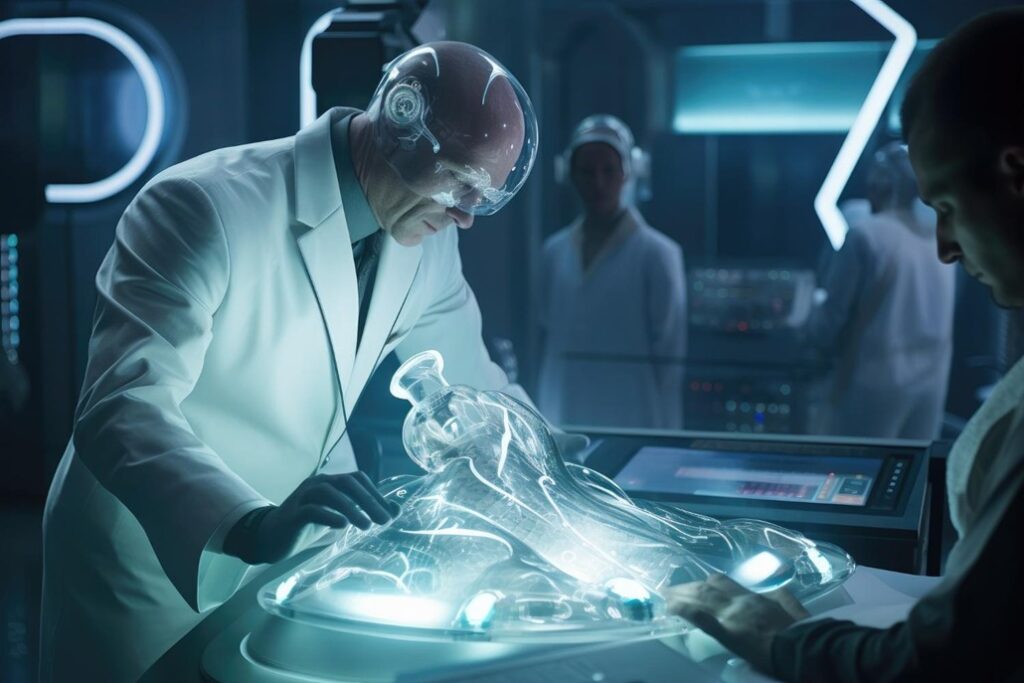Traditional orthopedic surgery methods are complex, as they depend on hand-eye coordination and the fact that every patient’s body is different. It’s hard always to get perfect results, as that usually means longer processes, changes of more mistakes, and results that aren’t even.
Artificial intelligence is gaining attention across the industry and our daily lives. It can even change orthopedic surgery by improving images and models that predict what will happen and making real-time data processing possible. These smart tools can reduce mistakes and improve patient outcomes by making it easier for surgeons to plan and carry out operations. However, AI is getting advanced day by day, and it can change operations to be more accurate and efficient, which leads to faster recovery times and better care in general.
Types of Orthopedic Surgery
Orthopedic surgery encompasses a wide range of procedures to treat musculoskeletal issues. Common types include:
Joint Replacement Surgery: Hip and knee replacements are among the most frequent orthopedic surgeries. These surgeries involve replacing damaged joints with prosthetic parts.
Spinal Surgery: Includes procedures to treat spinal deformities, herniated discs, and degenerative spinal conditions.
Arthroscopy: Minimally invasive surgery used to diagnose and treat joint problems such as torn ligaments or cartilage issues.
Fracture Repair: Involves surgically fixing broken bones using plates, screws, and rods to stabilize the injury.
AI for Diagnostics in Orthopedics
Early Detection of Conditions:
AI algorithms will help experts to effectively examine medical images like X-rays and MRIs to find orthopedic problems that are at early-stage. AI will help experts to make faster and more accurate diagnosis, that will lower the risk of delayed treatment than other methods.
Predictive Analytics for Disease Progression
AI is the future of the world, and it makes predictions in advance with real-time data; based on this, it can predict how musculoskeletal illnesses like osteoarthritis and degenerative disc disease will progress over time. AI can even help doctors make personalized treatment plans that prevent diseases from getting worse and prevent people from having to have invasive surgeries.
Improved Diagnostic Accuracy
AI can significantly improve the accuracy of diagnoses by lowering human error, especially when things are difficult, like finding small fractures or joint problems. Therefore, to get better at diagnosing, machine learning models can help experts understand orthopedic cases by analyzing patient data.
Personalized Diagnostic Insights
Artificial intelligence not only finds strange things but also provides unique information about each patient. By examining factors like genes, age, and culture, AI can guess how a problem will affect a patient and suggest personalized treatments that will work better.
Automated Diagnostic Reporting
Artificial intelligence makes detection easier by automatically writing detailed reports from medical photos that are examined. This will allow doctors and orthopedic experts to focus more on patient care and ensure faster diagnoses.
Applications of AI in Orthopedic Surgery
AI applications in orthopedic surgery have expanded significantly, offering benefits across various aspects of care:
1. Robotic-Assisted Surgery
Hire top AI developers to build robots that can assist surgeons in surgery. This AI-powered robotic surgery can help surgeries more effectively, like joint replacements, and be more accurate by letting surgeons give real-time feedback. These robots can help doctors be more accurate, cut down on mistakes, and speed up patient healing while causing less tissue damage. Robots can even help put implants in the right place, which lowers the risk of having to do more surgery and improves results.
2. AI in Preoperative Planning
With the help of AI, surgeons can carefully plan operations using 3D models made from medical scans. This will allow surgeons to develop better plans for surgery that are specific to each patient’s body. Basically, using artificial intelligence, surgeons can do their jobs better and with fewer problems.
3. Postoperative Care and Monitoring
Artificial intelligence can track movement, check on health, and find problems before humans can do so. AI can identify in real-time methods to let doctors know early on when recovery might be hard. Personalized therapy programs are designed to help patients get better faster and avoid having to go back to the hospital.
4. AI for Surgical Navigation
AI improves real-time image-guided surgeries by allowing more precise navigation during tough procedures. It will tell doctors exactly where to avoid sensitive tissues during procedures like spine fusions, keeping tissues from getting hurt and raising the success rate of complicated surgery.
5. AI in Medical Imaging and Diagnostics
AI can read X-rays and MRIs and figure out what’s wrong with muscles and bones more accurately. Diseases like gout and broken bones can be found early in life through AI. AI-powered predicting analytics can predict how an illness will get worse and can help with early steps and the best treatment plans.
Also read: The Role of AI in Healthcare
The Future of Artificial Intelligence in Orthopedic Surgery
Leveraging AI in any industry, their future looks bright; similarly, integrating AI in Orthopedic Surgery will make the future of the sector bright. As we have seen, technology is getting better day by day. Artificial intelligence algorithms are already advanced and will make surgery even more accurate and personalized care even better. Through these technologies, Surgeons can see and change real-time data about patients while they are operating.
Artificial intelligence offers more chances of making surgery successful. This will help find patients who are at high risk and suggest treatments that keep them from getting sick, which would reduce the need for invasive surgeries. Therefore, to leverage the benefits or if you are not sure of where AI can be implemented, get an AI consultation from the best AI services providers today.
Summary
AI is rapidly changing every industry, including orthopedic surgery. With AI development services, orthopedic sectors can effectively improve their operations by enhancing diagnosis and treatment, allowing surgeons to make orthopedic surgeries safer and more efficient. AI-based robotics can perform surgeries faster than traditional methods. As technology improves, the role of AI in orthopedic surgery will grow, which will open up new ways to care for patients and improve therapy results.







